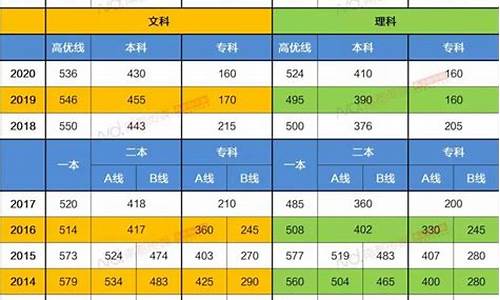高考英语语法总结汇总_高考英语语法总结

英语的重点主要在词汇,语法、阅读理解、 作文 ……等等,其中语法是让大家一直比较头疼的知识点,下面给大家带来一些关于英语语法 知识大全 汇总,希望对大家有所帮助。
1.英语语法指的是什么
英语语法是针对英语语言进行研究后,系统地 总结 归纳出来的一系列语言规则。英语语法的精髓在于掌握语言的使用。英语语法包括词语、时态、语态、语气、 句子 成分、句型结构等。
1.一般现在时:表示现在的状态、经常的或习惯性的动作、主语具备的性格和能力等。基本结构:主语+be/do+其他。
2.一般过去时:表示过去某个时间内(或某一段时间内)发生的动作或存在的状态,过去经常或反复发生的动作。基本结构:主语+动词的过去式或be的过去式+名词。
3.一般将来时:表示将要发生的动作、打算、计划或准备做某事。基本结构:主语+am/is/are+going to + do sth;主语+will/shall+do sth
4.一般过去将来时:立足于过去某一时刻,从过去看将来,常用于宾语从句中。基本结构:主语+was/were+going to+do+ 其它 ;主语+would/should+do+其它。
5.现在进行时:表示现在(说话时)或当前阶段正在进行或发生的动作。基本结构:主语+be+doing+其它。
6.过去进行时:表示过去某段时间或某一时刻正在发生或进行的行为或动作。基本结构:主语+was/were+doing+其它。
7.将来进行时:表示将来某一时间正在进行的动作,或表示要在将来某一时间开始,并继续下去的动作。常用来表示询问、请求等。基本结构:主语+shall/will+be+现在分词+其它。
8.过去将来进行时:表示就过去某一时间而言,将来某一时刻或某一段时间正在进行的动作,主要用于宾语从句中,尤其多用于间接引语中。基本结构:should/would+be+现在分词。
9.现在完成时:过去发生或已经完成的动作对现在造成的影响或结果,或从过去已经开始,持续到现在的动作或状态。基本结构:主语+have/has+p.p(过去分词)+其它。
10.过去完成时:以过去某个时间为标准,在此以前发生的动作或行为,或在过去某动作之前完成的行为,即“过去的过去”。基本结构:主语+had+p.p(过去分词)+其它。
2.英语语法基础知识汇总
1.as...as...引导的比较级:
(1)“as +形容词或副词原级+as+被比较对象”结构。例句:He studies as hard as you. 他像你一样学习努力。
(2)在否定句或疑问句中可用not so…as…. 例句:He can notrun so/as fast as you. 他没你跑得快。
2.only引导的倒装句型:only +状语(或状语从句)位于句首时,句子部分倒装。
例句: Only by diligence and honesty can one succeed inlife. 只有勤奋、正直,一个人在生活中才能成功。
注意:但 only修饰主语时,不倒装。例句:Onlythat girl knew how to work out the problem. 只有那位女生知道怎样解那道题。
3.wish引导的虚拟语气:wish 后面的从句,当表示与事实相反的情况,或表示将来不太可能实现的愿望时,其宾语从句的动词形式为:
(1)表示对现在情况的虚拟:从句动词用过去式或过去进行式表示,be 的过去式用were.
I wish I knew the answer to the question. 我希望知道这个问题的答案。(可惜不知道。)
(2)表示对过去情况的虚拟:从句动词用had +过去分词。
I wish (that) I hadn’t wastedso much time. 我后悔不该浪费这么多时间。( 实际上已经浪费掉了。)
(3)表示对将来的主观愿望:谓语动词形式为“would/ should/ could/ might +动词原形”。在这种情况下,主句的主语与从句的主语不能相同,因为主句的主语所期望的从句动作能否实现,取决于从句主语的态度或意愿(非动作名词除外) 。
I wish it would stop raining. 但愿雨能停止。
注意:若wish 后的宾语从句中用would,可以表示请求,通常意味着说话人的不快或不满。
例句:I wish you would be quiet. 我希望你安静一些。
4.it形式宾语:和it 作形式主语一样, 我们常用it 来作形式宾语, 把真正的宾语从句放在句末, 这种情况尤其出现在带复合宾语的句子中。
例句:He has made it clear that he will not give in. 他表明他不会屈服。
5.The+比较级,the+比较级表示“越......越......”。
例句:The more scared we are, the stronger the difficultywill become.我们越害怕困难,困难就会变得越强大。
6.宾语从句:一般疑问句做宾语,引入if或whether
例句: I want to know if he will join us in thediscussion?
7. 原因状语从句:since引导的
例句: Don’t eat too much sugarsince it is bad for your health.
8. 否定词前置倒装:scarcely...when...
例句: Scarcely had he arrived at home when it began torain.
9.If虚拟条件句
3.英语语法解析
1.连词that, if, whether,连接代词what, which, who, whom, whose以及连接副词how, when, why, where可用来引导名词从句,充当主语、表语、宾语等。非正式文体中的宾语从句常省略that:
I think (that) he’ll be back in an hour. 我认为他一小时后就会回来。
Who they are doesn’t matter much. 他们是谁没什么大关系。
Can you tell me where he is? 你能告诉我他在哪儿吗?
He asked me if/whether I knew John. 他问我是否认识约翰。
此外,that, which, who, whom, whose, when, why, where等还可以引导定语从句。
2.连词when, while, before, after, till/until, since, as soon as等引导时间状语从句:
She said hello to me when she saw me. 她看到我的时候,和我打了招呼。
I’ll wait here until you come back. 我将在这里等你回来。
3.连词if, unless引导条件状语从句;because, as, since引导原因状语从句:
I’ll help her if she asks me to. 如果她要求我,我就帮助她。
I won’t help her unless she asks me to. 除非她要求我,否则我不会帮她。
He didn’t come because he was ill. 因为他病了,所以没来。
As he hasn’t appeared yet, we shall start without him. 既然他还没有出现,我们就先开始吧。
Since everybody is here, let’s begin. 既然大家都到了,咱们就开始吧。
4.连词in order than, so that引导目的状语从句;so … that …引导结果状语从句:
I locked the door in order that we might continue our discussions undisturbed. (=I locked the door in order to continue our discussions undisturbed.) 我把门锁上了,以便我们可以继续讨论而不受打扰。
The car ran so fast that I couldn’t see who was in it. 汽车跑得那么快,我没看清谁坐在里面。
5.连词than, as…as…, not as/so…as…用来引导比较状语从句:
He is better educated than his brother. 他比他兄弟受的 教育 好。
He is as well educated as his brother. 他和他兄弟受的教育一样好。
He is not as/so well educated as his brother. 他没有他兄弟受的教育好。
6.连词although, though 引导让步状语从句;where, wherever 引导地点状语从句:
I’ll go wherever you go. 不管你去哪儿,我就去那儿。
Stay where you are! 原地别动!
Though/Although she is rich, she’s not happy. 尽管她富有,但她并不幸福。
一般来说,连词性质的连接词连接两个分句或引导一个从句,两个分句或主从复合句之间用逗号连接。
二、副词性连接词
副词性质的连接词不能象连词一样分句或主从复合句之间用逗号连接。也就是说它们不能连接两个分句或引导从句。它们引导的句子与前面的句子之间要用分号或句号,而它们与引导的句子之间往往用逗号。副词性质的连接词在写作中常常使用,主要分为以下几类:
1.表示顺序的,如first, in the first place, then, finally, in the end等等。尤其要注意then. 如:
误:He graduated from college in 2003, then he found a job.
正:He graduated from college in 2003, and then he found a job.
He graduated from college in 2003. Then he found a job.
2.表示递进关系的,如in addition, what is more, furthermore, moreover等。注意in addition 与in addition to 的区别:in addition 是副词性质;而in addition to 是介词性质,后面必须接宾语。
3.表示转折关系的,如however, nevertheless, nonetheless, on the contrary, in contrast, 等等。要注意不要把however 当成连词。
英语语法知识大全汇总相关 文章 :
★ 英语语法大全总结
★ 英语语法总结大全
★ 最全七年级英语语法知识点汇总
★ 初中常考的英语语法知识点汇总
★ 初一英语全册语法知识点汇总
★ 高考英语语法知识大全
★ 小学英语语法知识点汇总
★ 初一英语语法知识点总结归纳
★ 六年级英语语法知识点汇总
★ 高考英语必考语法知识点汇总
识在于积累、学习在于思考
1
2015
年高考英语语法单选超级归纳
一、冠词
冠词分为不定冠词(
a, an
)
,定冠词(
the
)
,和零冠词。
I.
不定冠词的用法
1
指一类人或事,相当于
a kind of
A plane is a machine that can fly.
2
第一次提及某人某物,非特指
A boy is waiting for you.
有个男孩在等你。
3
表示“每一”相当于
every
one
We study eight hours a day.
4
表示“相同”相当于
the same
We are nearly of an age.
5
用于人名前,表示不认识此人或与某名人有类似性质的人或
事
—
Hello, could I speak to Mr. Smith?
—
Sorry, wrong number. There isn't______ Mr. Smith here.
A.
不填
B. a
C. the
D. one
That boy is rather a Lei Feng.
(活雷锋)
6
用于固定词组中
a couple of, a bit, once upon a time, in a hurry, have a walk, many a time
7
用于
quite, rather, many, half, what, such
之后
This room is rather a big one.
8
用于
so(as, too, how)+
形容词之后
She is as clever a girl as you can wish to meet.
9
用于抽象名词具体化的名词前
success(
抽象名词
)
→
a success(
具体化
)
成功的人或事
a failure
失败的人或事
a shame
带来耻辱的人或事
a pity
可惜或遗憾的事
a must
必需必备的事
a good knowledge of
精通掌握某一方面的知识
II.
定冠词的用法
1
表示某一类人或物
In
many
places
in
China,
___
bicycle
is
still
___
popular
means
of
transportation.
A. a; the
B. /; a
C. the; a
D. the; the
2
用于世上独一无二的事物名词前
the universe, the moon, the Pacific Ocean
3
表示说话双方都了解的或上文提到过的人或事
Would you mind opening the door?
4
用于演奏乐器
play the violin, play the guitar
5
用于形容词和分词前表示一类人
the reach, the living, the wounded
6
表示“一家人”或“夫妇”
(对比上文的不定冠词用法
5
)
—
Could you tell me the way to ____ Johnsons, please?
—
Sorry, we don’t have ____ Johnson here in the village.
A. the; the
B. the; a
C. /; the
D. the; /
7
用于序数词和形容词副词比较级最高级前
He is the taller of the two children.
8
用于国家党派等以及江河湖海,山川群岛的名词前
the United States, the Communist Party of China, the French
9
用于表示发明物的单数名词前
The compass was invented in China.
10
在逢十的复数数词之前,指世纪的某个年代
in the 1990’s
(
二十世纪九十年代
)
11
用于表示度量单位的名词前
I hired the car by the hour.
12
用于方位名词,身体部位名词
He patted me on the shoulder.
III.
不用冠词(又名零冠词)的用法
1
专有名词,物质名词,抽象名词,人名地名等名词前
Beijing University, Jack, China, love, air
2
名词前有
this, my, whose, some, no, each, every
等限制
I want this book, not that one. /
Whose purse is this?
3
季节,月份,星期,节假日,一日三餐前
March, Sunday, National Day, spring
4
表示职位,身份,头衔的名词前
Lincoln was made President of America.
5
表示球类,棋类等运动的名词前
He likes playing football/chess.
6
与
by
连用表示交通方式的名词前
We went right round to the west coast by ______ sea instead of driving
across ______ continent.
A. the; the
B.
不填;
the
C. the;
不填
D.
不填;不填
7
以
and
连接的两个相对的名词并用时
husband and wife, knife and fork, day and night
知识在于积累、学习在于思考
2
8
表示泛指的复数名词前
Horses are useful animals.
二、
名词和主谓一致
I.
名词的种类
专有名词
普通名词
国名地名人名,团体机构名称
可数名词
不可数名词
个体名词
集体名词
抽象名词
物质名词
特别注意名词类别的相互转换
个体名词与抽象名词的相互转换
例
句
意
义
名词性质
①
She held some flowers in her hand.
②
The trees are now in flower
花儿
个体名词
开花
抽象名词
①
Youth is beautiful.
②
He is a youth of twenty
青春
抽象名词
年轻人
个体名词
①
They have achieved remarkable success in their work.
②
—
How about the Christmas evening party?
—
I should say it was a success.
成功
抽象名词
成功的事
个体名词
物质名词与个体名词的相互转换
例
句
意
义
名词性质
①
Iron is a kind of metal.
②
Please lend me your iron.
铁
物质名词
熨斗
个体名词
①
He broke a piece of glass.
②
He broke a glass.
玻璃
物质名词
玻璃杯
个体名词
①
I bought a chicken this morning
②
Please help yourself to some chicken
小鸡
个体名词
鸡肉
物质名词
抽象名词与个体名词的转换
具有动作意义的抽象名词加用
与某些动词(如:
have
等)连
用,表示某一次短暂的动作
①—
I’d like______information about the management of your hotel,please.
—
Well, you could have____word with the manager. He might be helpful
A.some,a
B.an,some
C.some,some
D.an,a
②
They sent us
word of the latest happenings.
消息
(抽象名词)
A.a
B.an
C./
D.the
③
Could we have
word before you go to the meeting?
话(个体名词)
A.a
B.an
C./
D.the
类例:
have a dream/a rest/a smoke/a swim/a trip/a wash/a discussion/a look
take a walk/a bath
make an advance(
进步
)/make an early start(
早点出发
)
/make a decision/make a change/give a cry of pain(
发出痛苦的叫声
) /give a try
表示知识和时间的抽象名词转
换为普通名词时可以用来表示
其中的一部分
①
Many people agree that___knowledge of English is a must in____international trade today.
A.a,
/
B.the, an
C.the, the
D. /, the
a knowledge of truth(
知道实际情况
)
give a fuller knowledge of China(
提供关于中国更为翔实的知识
)
have a knowledge of shorthand(
有速记的知识
)
②
If there were no examination, we should have______at school.
A.the happiest time
B.a more happier time
C.much happiest time
D.a much happier time
③
is money.
A.The time
B.A time
C.Time
D.Times
抽象名词转换为普通名词可用
来表示“一次、一阵、一种”
具体的行为、事件、现象或结
果。这时名词前往往有形容词
修饰
①
Oh, John. _____you gave me!
A.How a pleasant surprise
B.How pleasant surprise
C.What a pleasant surprise
D. What pleasant surprise
②
She looked up
when I shouted.
A.in a surprise
B.in the surprise
C.in surprise
D.in some surprise
其它例子:
The gift came as a complete surprise to me. We have had some unpleasant surprise
③
It is_____work of art that everyone wants to have a look at it.
A.so unusual
B. such unusual
C.such an unusual
D.so an unusual
II.
名词的数
规则名词的复数形式:名词的复数形式,一般在单数形式后面加
-s
或
-es
(参看有关语法书)
。英语里有些名词的复数形式是不规则的,请
看下表
规
则
例
词
1
改变名词中的元音字母或其他形式
man-men, woman-women, foot-feet, goose-geese, mouse-mice
2
单复数相同
sheep, deer, series, means, works, fish, species
3
只有复数形式
ashes, trousers, clothes, thanks, goods, glasses, compasses, contents
知识在于积累、学习在于思考
3
4
一些集体名词总是用作复数
people, police, cattle, staff
5
部分集体名词既可以作单数
(整体)
也可以作复数
(成
员)
audience,
class,
family,
crowd,
couple,
group,
committee,
government,
population, crew, team, public, enemy, party
6
复数形式表示特别含义
customs(
海关
),
forces(
军队
),
times(
时代
),
spirits(
情绪
),
drinks(
饮料
),
sands(
沙滩
),
papers(
文件报纸
),
manners(
礼貌
),
looks(
外表
),
brains(
头脑
智力
), greens(
青菜
), ruins(
废墟
)
7
表示
“某国人”
加
-s
Americans, Australians, Germans, Greeks, Swedes, Europeans
单复数同形
Swiss, Portuguese, Chinese, Japanese
以
-man
或
-woman
结
尾
的
改
为
-men,-women
Englishmen, Frenchwomen
8
合成名词
将主体名词变为复数
sons-in-law, lookers-on, passers-by, story-tellers, boy friends
无主体名词时将最后一部分变为复数
grown-ups, housewives, stopwatches
将两部分变为复数
women singers, men servants
III.
主谓一致
规则
情
况
举
例
语
法
一
致
原
则
以单数名词或代词动词不定式短语,
动名词短语或从句作主
语时,
谓语动词一般用单数形式;
主语为复数时,
谓语动词
用复数形式。
His father is working on the farm.
To study English well is not easy.
Reading in the sun is bad for your eyes.
What he said is very important for us all.
由
what
引导的主语从句,
后面的谓语动词多数情况用单数形式,
但若表语是复数或
what
从句是一个带有复数意义的并列结构
时,主句的谓语动词用复数形式。
what I bought were three English books.
What I say and do is (are) helpful for you.
由连接词
and
或
both
and
连接起来的主语后面,
要用复数
形式的谓语动词。但若所连接的两个词是指同一个人或物
时,它后面的谓语就用单数形式。由
and
连接的并列单数
主
语
前
如
果
分
别
有
no,
each,
every
或
more
than
a
(an)/one,many
a
(an)
修饰时,其谓语动词要用单数形式。
either, neither, each, every
或
no+
单数名词和由
some, any no,
every
构成的复合不定代词,都作单数看待。
.
Lucy and Lily are twins
The writer and artist has come.
Every student and every teach is in the classroom.
Many a boy and many a girl likes it.
No boy and no girl likes it.
Each of us has a new book.
Is everyone here today?
Somebody is speaking in class.
Everything around us is matter
若
none
of
后面的名词是不可数名词,它的谓语动词就要用单
数。若它后面的名词是复数,它的谓语动词用单数或复数都可
以。
None of the sugar was left.
None of us has (have) been to America.
在定语从句里,关系代词
that, who, which
等作主语时,其
谓语动词的数应与句中先行词的数一致。
Those who want to go please write their names on the blackboard.
He is one of my friends who are working hard.
He is the (only) one of my friends who is working hard.
在强调句型中应与被强调部分一致
It is I who am going to the cinema tonight.
It is we who are going to the cinema tonight.
如果集体名词指的是整个集体,它的谓语动词用单数形式;
如果它指的集体的成员,其谓语动词用复数形式
The police are looking for the lost child.
The cattle are eating grass in the field.
His family has moved to the south .(
他的一家
)
His family are watching TV.
(他的家人)
Class four is on the third floor.
(四班)
Class Four are unable to agree upon a monitor.
(四班的学生)
由
a lot of /lots of/ plenty of/ a heap of/ heaps of/ the rest of/the
majority
of+
名词构成的短语以及由分数或百分数
+
名词构
成的短语作主语时,
其谓语动词的数要根据短语中后面名词
的数而定。
There are a lot of people in the classroom.
Three-fourths of the surface of the earth is sea.
50 percent of the students in our class are girls.
此外,还有
a number of +
复数名词有类似的用法(用复数)
,但
the number of +
复数名词的数就得依
number
而定(用单数)
A number of students have gone to the farm to help the farmer pick
apples.
The number of pages in this book is three hundred.
在倒装句中,谓语动词的数应与其后的主语一致
There comes the bus.
On the wall are many pictures.
Such is the result.
Such are the facts.
Between the two hills stands a monument.
下载文档到电脑,查找使用更方便
5下载券 354人已下载
下载还剩21页未读,继续阅读
声明:本站所有文章资源内容,如无特殊说明或标注,均为采集网络资源。如若本站内容侵犯了原著者的合法权益,可联系本站删除。












